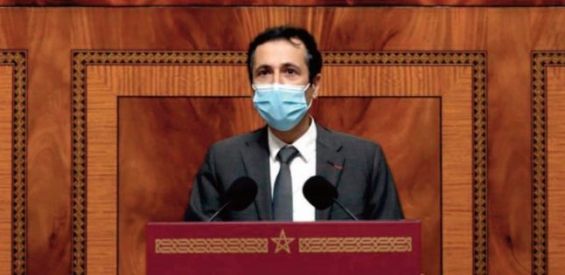Morocco's economy will suffer three shocks triggered by the strong deflation of the global economy, the precautionary measures against COVID-19 and the impact of two years of drought, said on Thursday Minister of Economy, Finance and Administration Reform, Mohammed Benchaaboun.
Speaking at the Government Council, held in Rabat, the minister made a presentation on the economic situation at the end of June, prospects for the end of 2020, the main developments at the international and national levels amid the coronavirus pandemic and the repercussions of the pandemic on the Moroccan economy, said Minister Delegate to the Minister of National Education, Vocational Training, Higher Education and Scientific Research, Driss Ouaouicha, at a press briefing held at the end of the government’s weekly meeting.
According to the Minister of Economy, the growth rate of the Moroccan economy will show a deflation of around 5%, for the first time since the end of the 1990s, while the macroeconomic balances will be strongly impacted, in particular the deficit of the budget and the current account of the balance of payments.
Regarding foreign trade, Benchaaboun indicated that the trade deficit has narrowed at the end of June, while remittances sent by Moroccans living abroad and incomes from tourism and foreign investments showed a sharp decline, noting, however, that the reserve assets improved thanks to the mobilization of foreign financing, at a time when the foreign exchange market stabilized without any intervention from Morocco's central bank (Bank Al Maghrib).
He said, in this regard, that the current account deficit of the balance of payments at the end of 2020 will reach 8% of GDP.
The implementation, at the end of June 2020, of the finance law shows a clear decrease in fiscal resources compared to preliminary estimates, while expenditure is at the same level as the estimates, thanks to the measures taken to support the national economy, he went on.
He noted that in view of these developments, the budget deficit would stand at 7.5% and the debt ratio at 75.5% of GDP.
All these estimates, however, remain dependent on the risks associated with the evolution of the coronavirus pandemic over the coming months, the minister stressed.




 chargement...
chargement...











